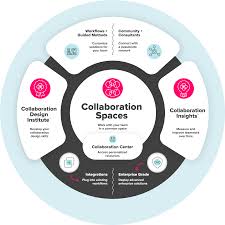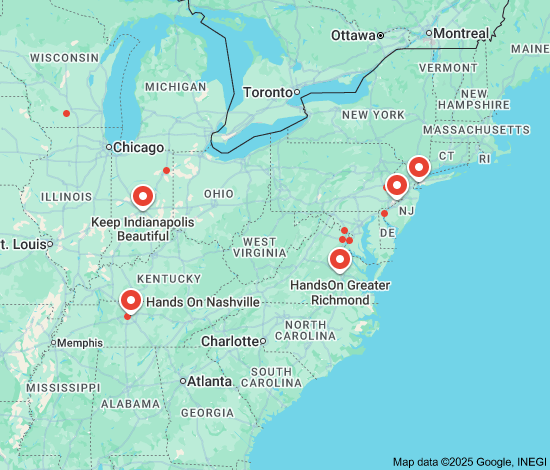The Power of Civil Rights Activism
Civil rights activism has long been a driving force in shaping societies and challenging systemic injustices. From the civil rights movements of the 1960s to present-day advocacy efforts, activists have played a crucial role in fighting for equality, justice, and dignity for all individuals.
Historical Significance
The history of civil rights activism is rich with examples of individuals and groups standing up against oppression and discrimination. Leaders like Martin Luther King Jr., Rosa Parks, and Cesar Chavez became iconic figures in the fight for racial equality, desegregation, and workers’ rights.
Impact on Society
Civil rights activism has led to significant changes in laws, policies, and societal attitudes. The struggles of activists have resulted in landmark legislation such as the Civil Rights Act of 1964, the Voting Rights Act of 1965, and the Americans with Disabilities Act of 1990.
Current Challenges
While progress has been made, challenges persist in areas such as racial justice, LGBTQ rights, immigrant rights, and gender equality. Activists continue to mobilize communities, raise awareness, and push for reforms to address these pressing issues.
The Role of Activists
Activists play a vital role in holding governments, institutions, and individuals accountable for upholding civil rights. Through protests, advocacy campaigns, legal actions, and grassroots organizing, activists amplify marginalized voices and demand change.
Call to Action
As we reflect on the legacy of civil rights activism and look towards the future, it is essential for individuals to engage in activism in their communities. By standing up against injustice, promoting inclusivity, and advocating for equality, we can collectively work towards a more just and equitable society for all.
Understanding Civil Rights Activism: Key Questions and Insights
- What is civil rights activism?
- Why is civil rights activism important?
- What are examples of successful civil rights activism movements?
- How can individuals get involved in civil rights activism?
- What challenges do civil rights activists face today?
- What impact has civil rights activism had on society?
- Who are some prominent figures in civil rights activism history?
- What are the key goals of civil rights activism movements?
- How does civil rights activism differ from other forms of social justice advocacy?
What is civil rights activism?
Civil rights activism encompasses the collective efforts of individuals and groups who advocate for equal rights, fair treatment, and social justice for marginalized communities. It involves taking action to address systemic discrimination, promote inclusivity, and challenge oppressive structures that perpetuate inequality. Civil rights activists work tirelessly to raise awareness, mobilize communities, and push for policy changes that uphold the fundamental rights and dignity of all individuals, regardless of race, gender, sexual orientation, or other identities. Through their dedication and perseverance, civil rights activists play a vital role in driving progress towards a more equitable and inclusive society.
Why is civil rights activism important?
Civil rights activism is crucial because it serves as a powerful catalyst for social change and progress. By advocating for equality, justice, and human rights, civil rights activism challenges systemic injustices and discrimination that marginalize individuals based on their race, gender, sexual orientation, or other identities. Through grassroots movements, protests, advocacy campaigns, and legal actions, civil rights activists amplify the voices of marginalized communities and push for reforms that promote inclusivity and fairness. Ultimately, civil rights activism plays a vital role in shaping a more equitable society where all individuals are treated with dignity and respect.
What are examples of successful civil rights activism movements?
Throughout history, there have been numerous successful civil rights activism movements that have brought about significant societal change. One notable example is the Civil Rights Movement in the United States during the 1950s and 1960s, led by prominent figures such as Martin Luther King Jr. and Rosa Parks. This movement resulted in key legislative victories, including the Civil Rights Act of 1964 and the Voting Rights Act of 1965, which aimed to end racial segregation and ensure equal voting rights for all citizens. Another impactful movement is the LGBTQ rights movement, which has achieved milestones such as the legalization of same-sex marriage in many countries. These movements serve as powerful reminders of the impact that dedicated activism can have in advancing civil rights and promoting equality for all individuals.
How can individuals get involved in civil rights activism?
Individuals can get involved in civil rights activism by engaging in various forms of advocacy and action. One way is to join local or national organizations dedicated to civil rights causes, where they can participate in campaigns, events, and initiatives that promote equality and justice. Educating oneself on civil rights issues, attending rallies and protests, contacting elected officials to voice concerns, and supporting marginalized communities are also impactful ways for individuals to contribute to civil rights activism. By taking proactive steps and standing up against discrimination and inequality, individuals can play a significant role in advancing civil rights for all members of society.
What challenges do civil rights activists face today?
Civil rights activists today face a myriad of challenges in their pursuit of social justice and equality. From systemic racism and discrimination to threats of violence and backlash, activists navigate a complex landscape where their efforts are often met with resistance. In addition, issues such as voter suppression, police brutality, LGBTQ rights, and economic inequality continue to be pressing concerns that require sustained advocacy and mobilization. Despite these obstacles, civil rights activists remain steadfast in their commitment to effecting change and dismantling oppressive structures in society.
What impact has civil rights activism had on society?
Civil rights activism has had a profound impact on society, shaping laws, policies, and attitudes towards equality and justice. Through the tireless efforts of activists, significant strides have been made in dismantling discriminatory practices and promoting inclusivity. The legacy of civil rights activism can be seen in landmark legislation that protects the rights of marginalized communities, such as the Civil Rights Act of 1964 and the Voting Rights Act of 1965. These movements have not only brought about legal reforms but have also sparked important conversations about systemic racism, gender inequality, LGBTQ rights, and other social justice issues. The impact of civil rights activism continues to resonate today, inspiring individuals to stand up against oppression and work towards a more equitable and inclusive society for all.
Who are some prominent figures in civil rights activism history?
Throughout history, there have been numerous prominent figures who have made significant contributions to civil rights activism. Icons such as Martin Luther King Jr., Rosa Parks, Malcolm X, Cesar Chavez, and Susan B. Anthony are widely recognized for their tireless efforts in fighting for equality, justice, and social change. These individuals courageously challenged oppressive systems and paved the way for progress in areas such as racial equality, women’s rights, labor rights, and LGBTQ rights. Their legacies continue to inspire current and future generations of activists to advocate for a more inclusive and equitable society.
What are the key goals of civil rights activism movements?
The key goals of civil rights activism movements are centered around advocating for equality, justice, and dignity for all individuals. These movements aim to combat discrimination, oppression, and systemic injustices based on factors such as race, gender, sexual orientation, disability, and more. Key objectives include securing legal protections against discrimination, promoting equal access to opportunities in areas such as education and employment, challenging institutionalized racism and prejudice, and fostering a society where every person is treated with respect and fairness. Civil rights activism movements strive to create lasting social change by raising awareness, mobilizing communities, and pushing for policy reforms that uphold the fundamental rights of all individuals.
How does civil rights activism differ from other forms of social justice advocacy?
Civil rights activism stands out from other forms of social justice advocacy due to its specific focus on addressing systemic inequalities and discrimination based on factors such as race, gender, sexual orientation, and disability. While social justice advocacy encompasses a broad range of issues, civil rights activism centers on fighting for legal protections, equal opportunities, and fair treatment for marginalized communities within the framework of civil rights laws and policies. Civil rights activism often involves challenging existing power structures, advocating for policy reforms, and promoting societal changes to ensure that all individuals are afforded their fundamental rights and freedoms.




Leave a Reply